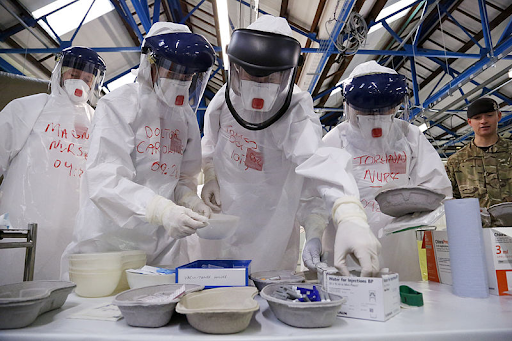Government in Hot Water Over 'Cronyistic' PPE Contracts

By Samia Majid, MA History
The National Audit Office (NAO) recently published a report on the UK government’s procurement of Personal Protective Equipment (PPE), highlighting chronic mismanagement of public funds.
The report revealed that ‘high-priority’ suppliers with political connections were 10 times more likely to be awarded PPE contracts than companies using standard channels. Whilst the government awarded a total of £18 billion in contracts in the first six months of the pandemic, £10.5 billion was awarded without competitive tender.
Government auditors stated that there was ‘no documentation on the consideration of conflicts of interest, no recorded process for choosing the supplier, and no specific justification for using emergency procurement’.
Adequate checks were not carried out until after contracts were signed, with missing paperwork increasing the risk of underperformance and negligence. The NAO highlights potential conflicts of interest and emphasises a lack of transparency regarding supplier decisions.
The government now faces accusations of cronyism and corruption from The Good Law Project and EveryDoctor, which have brought court proceedings against the Department of Health and Social Care. They assert that the government is guilty of unlawful mismanagement of public funds, violating rules stating that contract notices must be provided within 30 days in order to mitigate the risk of fraud.
The Prime Minister has since asserted that he is ‘proud of securing PPE supplies and any government would have done the same’. Appearing on BBC’s The Andrew Marr Show in November, Rishi Sunak, Chancellor of the Exchequer, in a similar vein asserted that during the desperate time on the onset of the Covid crisis in Britain, he and the government ‘had to act very quickly’.
In the first virtual Prime Minister’s Questions, Johnson added that all government contracts will be made public.
‘The PPE crisis continues to unfold in light of news that the government awarded multi-million pound PPE contracts to businesses with little or no experience.’
The PPE crisis continues to unfold in light of news that the government awarded multi-million pound PPE contracts to businesses with little or no experience. These include a £252 million contract to Ayanda Capital and a £32 million contract to Crisp Websites; it was later revealed that 50 million supplies obtained from Ayanda were unfit for purpose due to safety concerns.
The UK’s precarious dependence on outsourced PPE has highlighted an urgent need to invest in domestic manufacturers. It was revealed that a Spanish businessman received £21 million of British taxpayer money in return for secure PPE equipment. Gabriel Gonzalez Andersson worked as an intermediary for the British government and Michael Saiger, owner of a Florida-based jewellery company, Miansai.
Miami court documents show that Mr Andersson was awarded ‘a number of lucrative contracts’ to supply protective garments to the NHS. Although the Department of Health maintains that proper checks were in place, court documents claim Mr Andersson ended his work with Mr Saiger shortly after the contracts were signed, prompting a massive delay in PPE deliveries to frontline workers. Despite this, Saiger LLC was poised to receive an additional three PPE contracts in June.
More recently, a Guardian investigation exposed the government’s dependence on PPE manufacturers that have been found using forced labour. Chinese factories in Dandong, keep North Korean women in conditions akin to modern slavery, according to the UN. They toil under 18-hour workdays with little or no breaks. And, subject to constant surveillance, labourers are prevented from leaving work.
Dandong factories are a hub of PPE production, exporting supplies to the U.S., Germany, Italy, and the Philippines, among others. North Koreans form the bulk of the workforce in Dandong factories, which are situated on the border between China and North Korea. Workers earn as little as 2,200 (£240) to 2,800 (£310) yuan a month, but the North Korean state appropriates around 70% of wages.
This is not the first instance where the British government has faced backlash over its PPE procurement practices. In September, it sourced PPE from Top Glove, a Malaysian medical glove manufacturer accused of using forced labour. The company allegedly forced labourers to work 12-hour shifts and provided no protective measures against hazards or risks to its employees.
Photo Caption: The UK government is facing a PPE crisis (Credit: Simon Davis, DFID, UK Department for International Development via Wikimedia Commons).



